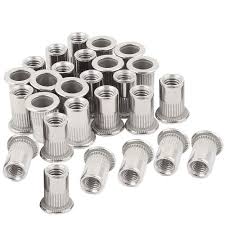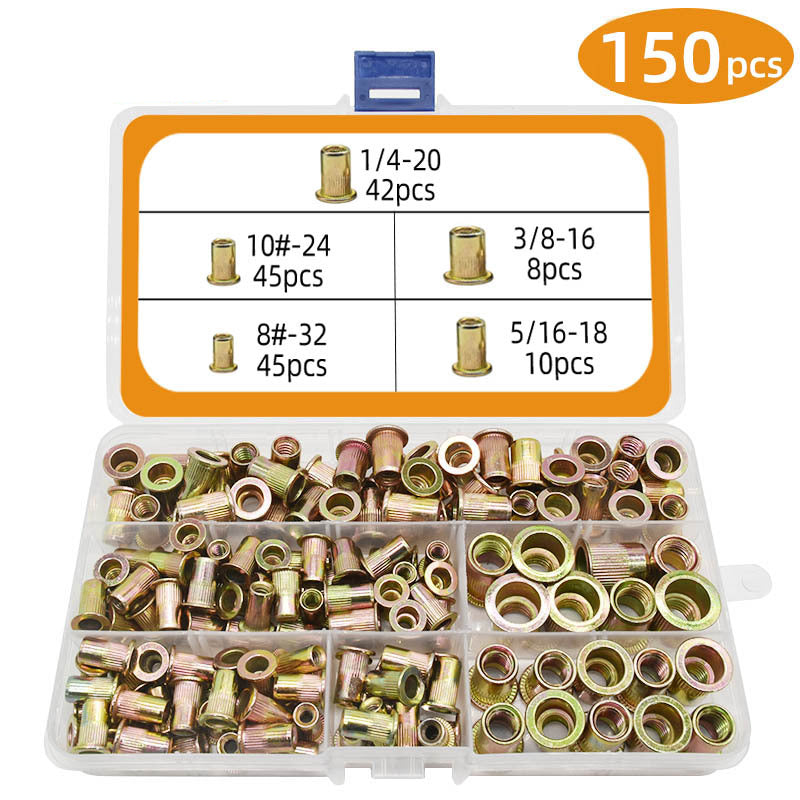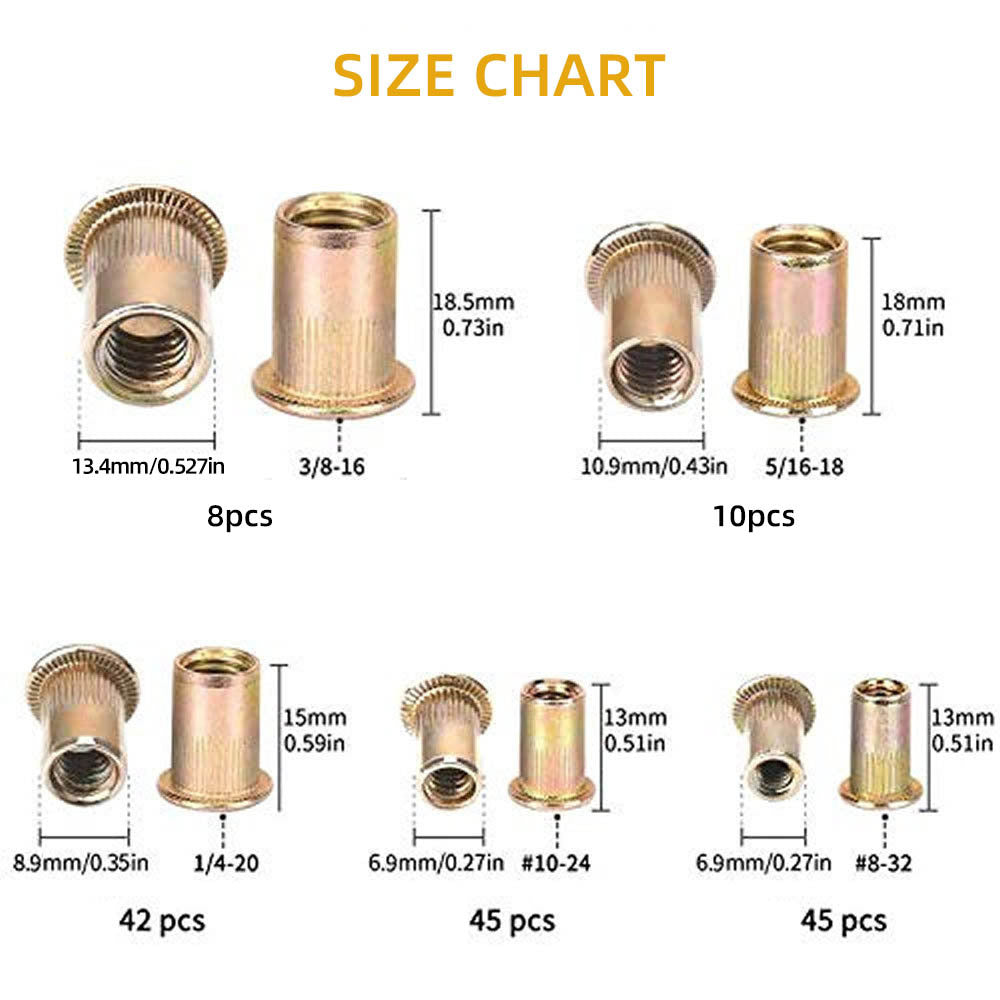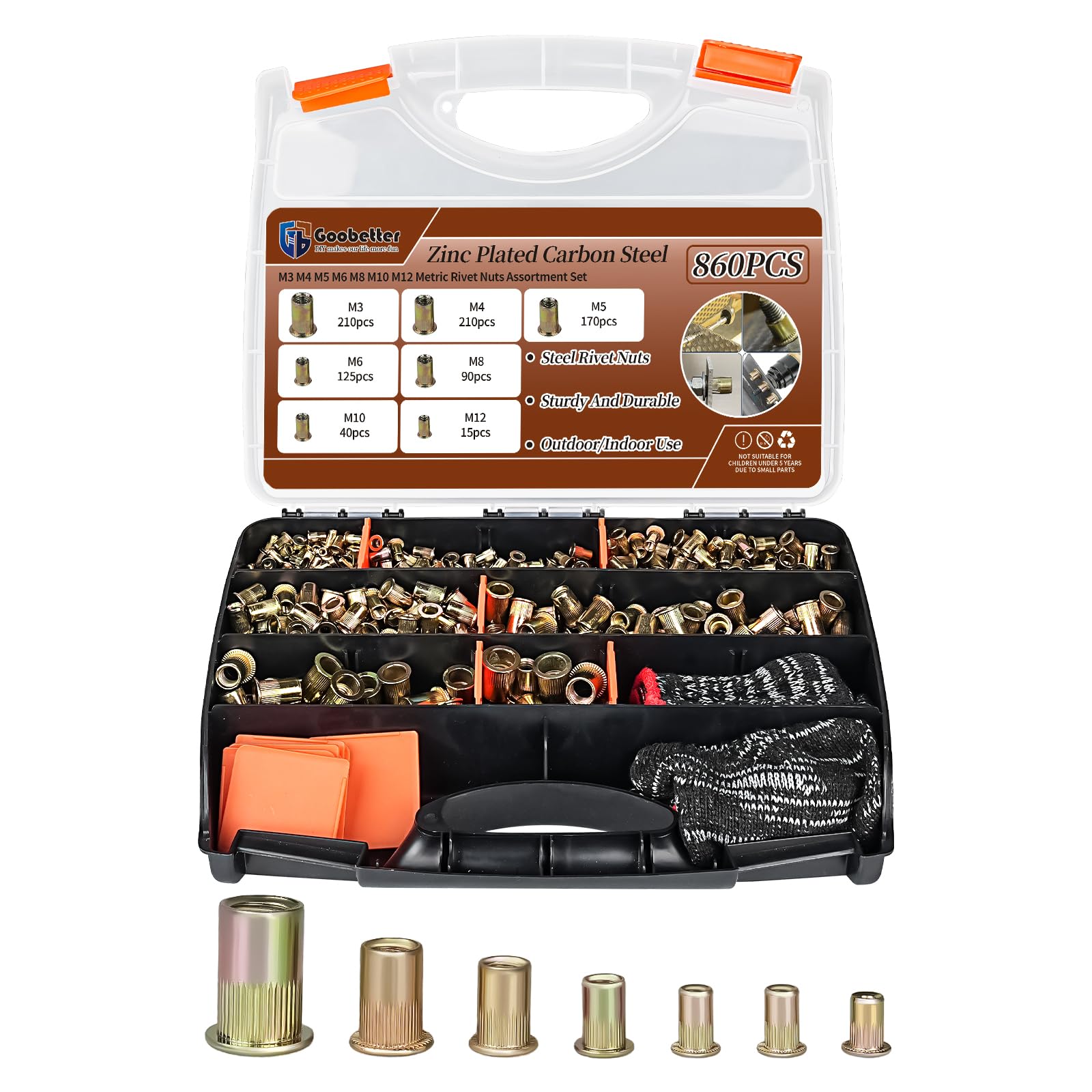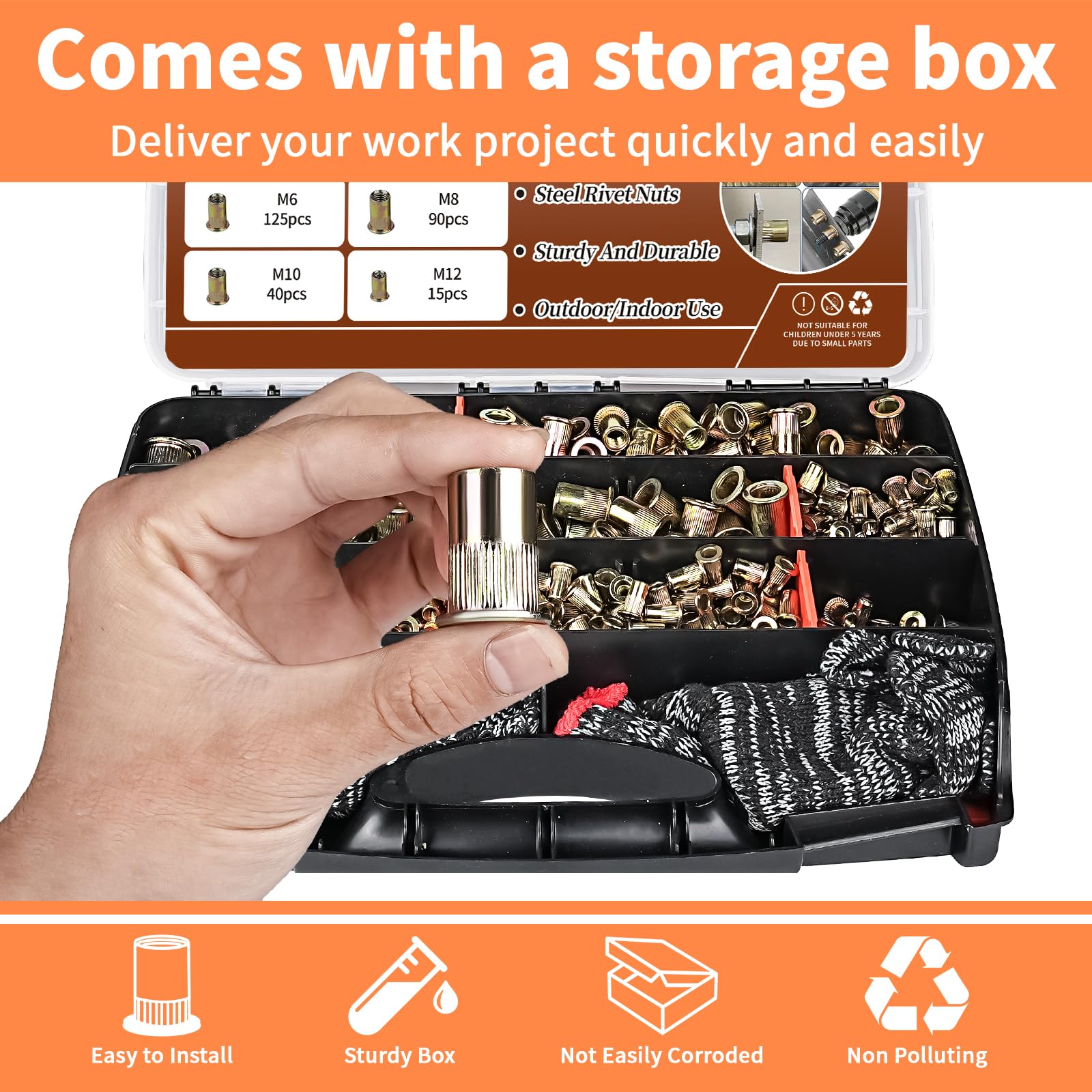Premium Insert Nuts and Fastening Solutions for Every Project
At HomeDIYer, we provide professional-grade insert nuts, rivet nut inserts, and installation tools designed for durability and precision. Whether you’re working with wood, metal, plastic, or sheet materials, our selection includes threaded insert nuts, nylon lock nuts, and waterproof fasteners to ensure secure, long-lasting connections. Perfect for furniture assembly, automotive repairs, and industrial applications.
Recommended Product Category
The Complete Guide to Insert Nuts: Types, Uses, and How to Choose the Right Fastener
Introduction
Insert nuts are essential fasteners for creating strong, reusable threads in materials like wood, plastic, and metal. From assembling furniture to automotive repairs, these small components play a big role in ensuring structural integrity. In this guide, we’ll break down everything you need to know about insert nuts, rivet nut tools, and specialized solutions like nylon insert lock nuts or threaded wood insert nuts.
What Are Insert Nuts?
Insert nuts (also called threaded inserts or nut inserts) are threaded fasteners installed into pre-drilled holes to create durable internal threads. They’re ideal for materials that can’t support threads on their own, such as:
- Wood insert nuts: Reinforce joints in furniture or cabinetry.
- Metal insert nuts: Used in automotive or machinery for high-strength applications.
- Plastic nut inserts: Prevent stripping in soft materials like PVC or 3D-printed parts.
Popular Types:
- Rivet Nut Inserts: Installed with a rivet nut insert tool, these expand to grip thin metal sheets.
- Threaded Insert Nuts: Feature external threads for wood or plastic (e.g., threaded wood insert nut).
- Nylon Insert Lock Nuts: Include a nylon ring to resist vibration loosening (e.g., 10-32 nylon insert lock nut).
- Blind Nut Inserts: Designed for hard-to-reach areas.
Why Use Insert Nuts?
- Durability: Prevent stripped threads in soft materials like wood or plastic.
- Reusability: Threads remain intact even after repeated screw removal.
- Versatility: Compatible with insert nuts for metal, wood insert nuts, and more.
- Strength: Ideal for heavy-duty applications like automotive nut inserts or furniture nut inserts.
Pro Tip: Pair with a rivet nut inserter tool for quick, professional installations.
How to Choose the Right Insert Nut
- Material Compatibility
- Wood: Opt for wood insert nuts with coarse external threads.
- Metal: Choose rivet nut inserts or sheet metal nut inserts.
- Plastic: Use plastic insert nuts with knurled designs for grip.
- Size & Thread Type
- Common sizes include M4 insert nuts, 3/8 insert nut, and 10-24 insert nut.
- Match thread standards (e.g., 1/4-20 insert nut drill size).
- Special Features
- Vibration Resistance: Nylon insert lock nuts (e.g., 10-32 nylon lock nut).
- Waterproofing: Stainless steel or coated inserts for outdoor use.
- Installation Method
- Manual Tools: Affordable for DIYers (e.g., blind nut insert tool).
- Power Tools: Save time for industrial projects (e.g., rivet nut insert tool).
Step-by-Step Installation Guide
Installing Wood Insert Nuts:
- Drill a pilot hole (check 3/8 wood insert nut drill size for guidance).
- Use a nut insert tool or hex key to screw the insert into the wood.
- Ensure the insert sits flush with the surface.
Installing Rivet Nut Inserts in Metal:
- Drill a hole matching the insert’s diameter.
- Insert the rivet nut and use a rivet nut inserter to compress it.
- The insert expands, creating a secure thread.
Pro Tip: For plastic nut inserts, heat the insert slightly to ease installation.
Top Applications for Insert Nuts
- Furniture Assembly
- Use furniture insert nuts to reinforce joints in tables, chairs, or cabinets.
- Automotive Repairs
- Rivet nut inserts secure panels, brackets, or engine components.
- 3D Printing
- Embed 3D print insert nuts into plastic parts for screw mounts.
- Outdoor Projects
- Stainless steel waterproof insert nuts for patio furniture or decking.
- Industrial Machinery
- Threaded insert nuts for metal handle high-stress connections.
FAQs About Insert Nuts
Q: What’s the difference between a rivet nut and a threaded insert?
A: Rivet nut inserts are pressed into thin metal, while threaded inserts screw into wood or plastic.
Q: Can I reuse insert nuts?
A: Yes! Quality insert nuts for wood or metal maintain threads after screw removal.
Q: How do I remove a damaged insert nut?
A: Use an insert nut extractor tool or drill it out carefully.
Q: Where to buy insert nuts near me?
A: HomeDIYer ships nationwide! Explore our rivet nut inserts Home Depot-grade quality online.
Why Choose HomeDIYer?
- Free Shipping: On orders over $50.
- Industrial-Grade Quality: Our nylon insert lock nuts and threaded insert nuts meet ASTM standards.
- Expert Support: Need help choosing between M6 insert nuts or 5/16 insert nuts? Contact us!
Conclusion
Whether you’re a DIY enthusiast or a professional contractor, the right insert nuts and tools can make or break your project. From wood nut inserts to heavy-duty rivet nut inserts, HomeDIYer offers solutions for every material and application. Browse our collection today and achieve flawless, long-lasting fastening every time!

